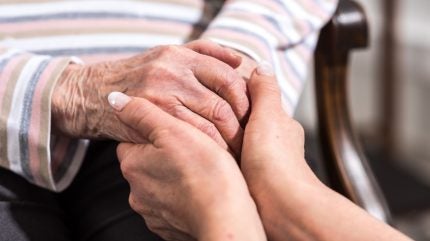

S.BIOMEDICS has reported encouraging one-year post-transplant outcomes from a Phase I/IIa study of its cell therapy, TED-A9, for treating Parkinson’s disease.
The data revealed improvements in both the low and high-dosing cohorts during the one-year follow-up showcasing the therapy’s efficacy.

Discover B2B Marketing That Performs
Combine business intelligence and editorial excellence to reach engaged professionals across 36 leading media platforms.
The study involved 12 subjects aged 50 to 75 years old, who had Parkinson’s disease for over five years and who were exhibiting motor complications.
Its primary objective was to evaluate the exploratory and safety efficacy of the therapy over two years post-transplant, with an additional three years of safety monitoring.
In the trial, subjects were evaluated using the Hoehn and Yahr scale, a metric for evaluating Parkinson’s disease severity.
Three individuals receiving the low dose showed an average enhancement of 19.4% while the high-dose group experienced a 44.4% improvement, representing a transition from severe to milder disease states.

US Tariffs are shifting - will you react or anticipate?
Don’t let policy changes catch you off guard. Stay proactive with real-time data and expert analysis.
By GlobalDataFurther behavioural recovery was observed using the Movement Disorders Society (MDS)-Unified Parkinson’s Disease Rating Scale (UPDRS) Part III (off), with low-dose subjects improving by 22.7% and high-dose subjects by 25.3%.
In addition, the freezing of gait was fully resolved in one of two low-dose subjects and all high-dose subjects, suggesting a restoration of normal movement.
The underlying mechanism of behavioural recovery was assessed using FP-CIT PET scans, which showed an increase in dopamine transporters, indicative of successful dopaminergic graft and synapse formation by the transplanted cells.
The high-dose arm exhibited a more significant increase compared to the low-dose arm.
Non-motor symptoms also improved, as demonstrated by positive outcomes in the Non-Motor Symptoms Scale, the Parkinson’s Disease Questionnaire-39, MDS-UPDRS Part II, and the Schwab and England Activities of Daily Living Scale.
S.BIOMEDICS CTO Dong-Wook Kim said: “The results demonstrate that we have developed a cell therapy that not only promotes behavioural recovery but also confirms the mechanism through neuroimaging. We will continue to unveil new data through our ongoing study.”
There were no safety issues related to the transplanted cells, with only one mild haemorrhaging incident reported, which was not related to the transplant site.
Cell & Gene therapy coverage on Clinical Trials Arena is supported by Cytiva.
Editorial content is independently produced and follows the highest standards of journalistic integrity. Topic sponsors are not involved in the creation of editorial content.






